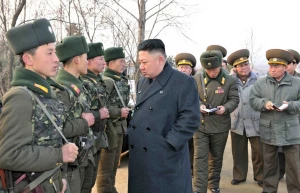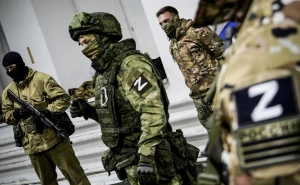
Ukraine sets example for modern robotic warfare — former Swiss Armed Forces Chief Aldo Schellenberg
Aldo Schellenberg, former Chief of the General Staff of the Swiss Armed Forces and member of the Supervisory Board of IVF HARTMANN, emphasized that Ukraine has shown the world how to conduct modern warfare, given it is a form of "robotic warfare"
So, I would suggest that we start with military issues. Since you are a military General, I would like to ask you a few questions related to the military. How do you, as a General, assess the current situation on the frontline in Ukraine?
But first, let me make a statement that comes from the bottom of my heart.
I truly admire the Ukrainian Armed Forces and the entire population for their heroic fight against the aggressor. It shows me what people can achieve when they know what they are fighting for. They are fighting for freedom and democracy, and this is a powerful example for the entire Western world, especially for Switzerland.
But how do you assess the situation that is currently happening on the frontline?
Well, I assess that it is very, very difficult. What we see is a situation where the opponent is bringing in all its forces, heavy ammunition, and weapons. This is an extremely dangerous situation for Ukraine at the moment
But you have already said that this can be a great example for all the other militaries, such as Western militaries and the Swiss military, for example. However, when we speak about practical examples, what specific lessons or practices can the Swiss military take from what is happening in Ukraine right now?
I think there are three or four key examples.
Number one: Ukraine has demonstrated how modern warfare must be conducted. It is a kind of robotic warfare. We have drones on the maritime side, drones on the ground, and drones in the air. The deployment of drones marks a significant shift from traditional warfare. If I look at my own country, we are quite far behind in this area, and we are struggling a lot now to catch up. This includes acquiring the know-how on how to use drones, how to build them, and how to integrate them into an armed forces system that is based on a militia structure. I believe this is a very important point.
The second point is that Ukraine has managed to significantly speed up a real-time sensor-to-shooter loop, often referred to as the "killing cycle." You observe the enemy, and seconds or minutes later, you achieve an effect on the enemy and are able to neutralize them. This process has been declared a key objective for the Swiss Armed Forces as well—to digitalize and speed up this process of observation, detection, and elimination.
However, while these are some of the most important lessons learned, they do not replace conventional warfare. You still need anti-tank systems, artillery, long-range artillery, an air force, and ground-based air defense systems to protect your people and armed forces from incoming threats such as ammunition falling from the sky.
So, this is what other people can learn from Ukrainians, but what can Ukrainian military personnel learn from, for example, Swiss military personnel?
Well, this is a very hard question because, for me, you are the role model. You truly are the role model.
When it comes to Switzerland, we still have, and we are proud of, a conscript system. Every man has to do military service. They complete their basic training, and then they are sent home.
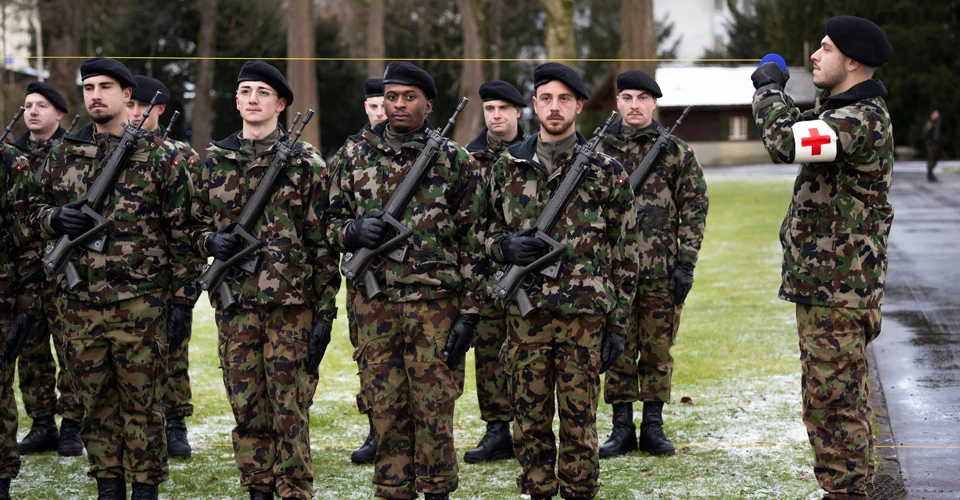
gettyimages
After that, they are mobilized once a year for a few weeks. This continues for 10 years after completing their basic training. Every year, they must return for a few weeks of service.
Sorry to interrupt you. And how long is the basic training?
It's only 18 weeks. That's extremely short. Why is it so short? Because Switzerland has an educational system that ensures every young person, by the age of 18, 19, or 20, has a profession. They might be a carpenter, an electrician, or something else. We use that know-how in military service. For example, we don't need to teach a mechanic how to repair a car.
You have that mechanic.
We have that mechanic. We just need to show him the specific type of car, of course.
But within 18 weeks, he is trained professionally.
So, we have a very short basic training, and then we send them home, fully equipped—helmet, uniform, arms, boots, everything. After that, they are called in once a year for a few weeks, in their combat battalion. They do their exercises and maneuvers with their comrades in their respective battalion.
This system has two main benefits:
Number one, it speeds up the training process.
Number two, you have a cohort of 10 reserves. So, if there is a full mobilization of the Swiss Armed Forces, you have 150,000 people ready to fight from the very first moment.
This conscript system, based on a militia structure, is something we are really proud of, and it helps mobilize the whole population.
That's a good example. That's really a good example. However, I wanted to ask this question first, but I forgot. Sorry, I will ask it now. What did you personally feel on February 24th, 2022, when the full-scale Russian invasion began?
I was surprised. I was shocked. I really feared that they could succeed, as Russia advanced so quickly toward Kyiv.I was very relieved and proud of the Ukrainian Armed Forces for fighting them back so quickly, so clearly, and so decisively.
Why was I surprised? Because we had all the early warning signals. We observed the concentration of troops on the Ukrainian border. But almost all military experts said, 'That's crazy. They can't do that. They have overstretched their frontline. They have no depth. They have the wrong troops, the wrong weapons, in the wrong places. They can't be that stupid.'
But they were.
And they did it. And that was a lesson. That was a lesson in war, in power politics. It's not just about rationalism, not only about logic, and not only about military logic. There are many other factors involved. So, you have to be prepared for all eventualities.
Unfortunately, we have...
Okay, let's talk a little bit about other issues, specifically medical issues. Right now, you are operating as a member of the supervisory board of a company that works in the medical field. But in the defense sector, what is your company offering to Ukraine right now? What do you do, what do you produce, and what do you offer to the Ukrainian military?
IVF Hartmann is a Swiss-based company listed on the Swiss Exchange.
Although the majority is owned by a German company, Paul Hartmann, we have been producing medical materials for over 100 years.
We specialize in products designed for the critical first 15 to 20 minutes after an injury. For example, we produce a so-called trauma bandage, which is extremely easy to use and apply. It effectively stops bleeding from extremities, such as legs and arms.
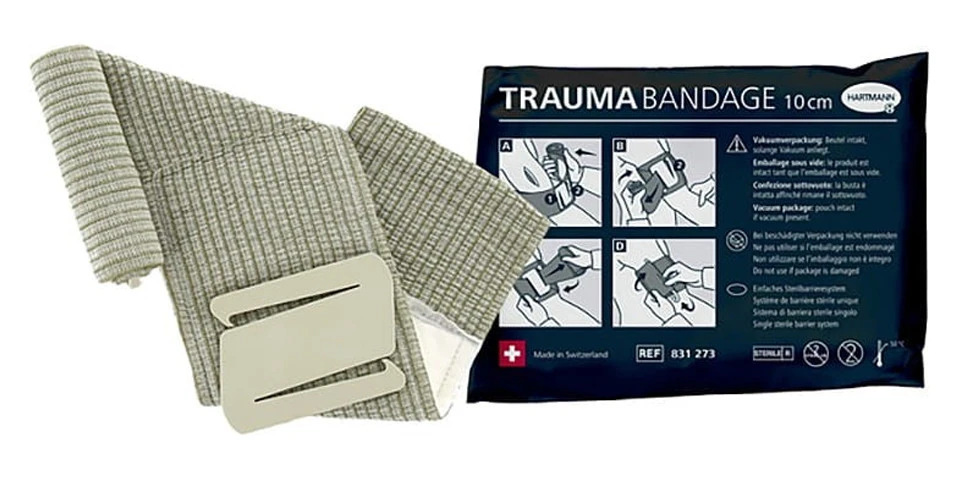
What we provide is medical material designed to save lives during those crucial first 15 to 20 minutes, when most fatalities occur. With trauma bandages, you can save lives in this critical window.
We want to provide this to your military to help bring your sons and daughters home safely.
But this is not the only product you are making.
It is not the only product we make, but let’s say this is our core product. We also provide items such as chest seals.
If you are hit in the upper part of your body, air enters your chest cavity, breaking the vacuum inside. This causes your lung to collapse, and you need to re-establish the vacuum. To do this, you need to seal both the entry wound and the exit wound. That is what chest seals are used for.
If you have a wound in your leg, arm, or body that is bleeding heavily, you need a so-called tamponade. This involves a special gauze with an application designed to stop the bleeding. You place it into the wound and then secure it with a bandage.
Another very important instrument is the so-called tourniquet. If you have a wound that is bleeding severely, you need to interrupt the artery to stop the blood flow. A tourniquet is a simple instrument used to stop the bleeding before applying the bandage.
These are just a few examples of products that are part of the so-called IFAK.
IFAK stands for Individual First Aid Kit. Every soldier carries one to use when injured, and these elements are the most essential components of such a kit.
Is this support provided to the Ukrainian Army privately by your company, or would you say it is state support from the Swiss government?
It is typically financed through the so-called ..
Ramstein contract.
The European Union and NATO have established a fund to finance Ukraine’s needs.
The contract functions as a type of triangular agreement. First, we make a contract with the Ukrainian Armed Forces or the relevant ministries. They specify what they need, how much, and in what quantities.
Then, we approach the Ramstein fund, which is managed by the German government. If they confirm both the need and the price, we finalize the contract with the Ukrainian Ministry and Germany.
We deliver the goods to Ukraine, and the payment comes from this fund. So, yes, it is essentially a gift from the European community and NATO to Ukraine.
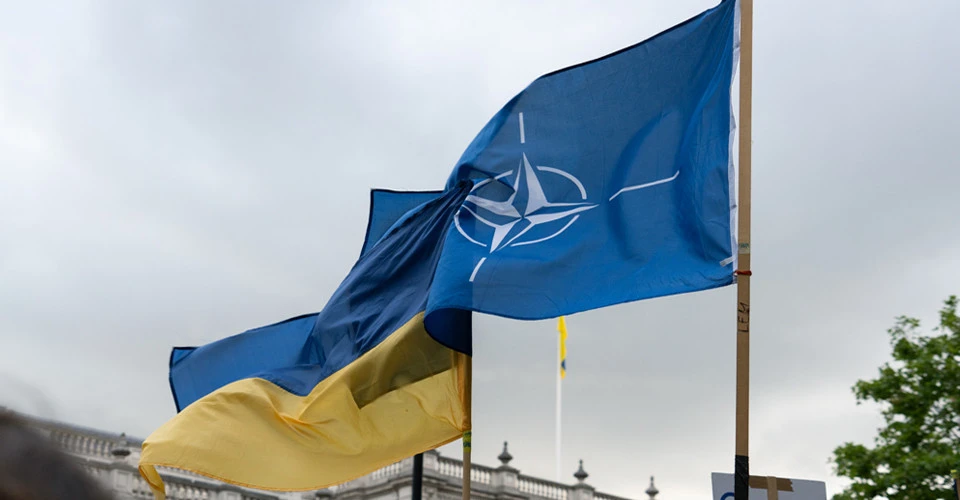
General, I understand that there is a great need for these items from our military personnel. But is the Ukrainian government open to working with you and cooperating with your company?
Yes, yes, of course. It is in their own interest to save the lives of their people who are so bravely fighting for your freedom and independence. They want to bring their soldiers back home the same way they entered the war — safe.
Are you going to meet some government officials?
Yes, yes, we are going, but not all meetings have been confirmed yet. So, I cannot tell you exactly who we are going to meet because, let’s say, the schedule is changing every half an hour. People are extremely busy, and they have to set priorities based on the daily business and what is happening here today.
However, we hope to meet top senior officials from the ministries and high-ranking military generals.
I truly hope that you will finalize these agreements because these items are very necessary for our military personnel. And you have another item on the table. What is it?
Yes, this is the grand-grandfather of this one. Hartmann has been producing trauma bandages for over 100 years. The company was founded in 1871, so it is a very traditional Swiss company.
For more than 100 years, we have supplied the Swiss Armed Forces, and this is the very first product from 1911
Wow, 1911
So 114 years old is this one. And this one here is just a few weeks old.
So this item helped people many years ago. But can you compare them? I mean, will it still help people today?
You know, this is a very simple gauze bandage with a cushion.
You simply put the cushion on the wound, wrap the gauze around it, and to really secure it and apply pressure, you had to place a stone on it to add pressure. You also needed a knife to cut the gauze and tie a knot. So, it was complicated, though it was effective.
This new one is much more intuitive to handle. Let me show you, okay?
You open it like this, like that. And here you have the bandage. It has a little adhesive, so it does not fall into the mud. You see the cushion? You put it directly on the wound, wrap the bandage around, and then you have this plate to apply pressure on the wound.
Oops!
So, it is very easy to use
It is extremely easy to use.
Of course, you would not typically use it on the hand. At the end, it has a mechanism to secure it in place. You see? I can even do it by myself with one hand, without much training, and it stays fixed.
It applies pressure to the wound, stopping the bleeding. That is it. It can be applied within seconds — very easy and very effective.
Thank you very much for this. Thank you very much for all the help and support we are receiving from your company and your country.
But speaking about the support and help from Switzerland, here in Ukraine, we would like your country to help us more on a state level. What do you personally think? Why does the Swiss government hesitate when it comes to supporting Ukraine?
Yes. First of all, we have to distinguish between empathy and clearly stating that Ukraine has been attacked in violation of international law by an aggressor. This is against all international laws, and we strongly condemn that. The Swiss government also condemns it clearly.
However, Switzerland has declared itself neutral for more than 500 years. There is an international law regarding neutrality, and this law is very clear. It forbids us from supporting one of the belligerent parties. If we were to support Ukraine militarily, we would be obliged to support Russia in exactly the same way. This is what the international law of neutrality states.
I can fully understand and I feel the same that this seems wrong in this context. However, this has been Swiss policy for 500 years. We followed this position through both World War I and World War II, and we believe that it was crucial in keeping Switzerland out of war.
This is a position we have clearly stated over the past 500 years, and we reaffirmed it during the last three years. We know that being neutral in such a situation is the most difficult position because nobody understands it. Nobody understands it.
I can empathize with that frustration. Back home, we are having political discussions about how far we should go, and we have already begun to interpret our position on neutrality in a softer way.
So, it does not depend on who is currently serving as the President of the Swiss Confederation. It is simply because the law is in place.
Yeah, it's the law
But can Switzerland provide some kind of humanitarian assistance or, for example, technological assistance?
Of course, humanitarian assistance, of course, and we do. We arrange international conferences in Switzerland about peace in Ukraine. A very recognized conference was held in June, and our president, who is also the defense minister, was involved.
We try to bring in our humanitarian tradition and the tradition of offering a neutral space, along with the necessary capabilities, to help find peace. However, we are not allowed to support militarily. What is included is that if we sell weapons, for example, to Germany, Spain, Denmark, or the Netherlands, and they want to support Ukraine with those weapons…
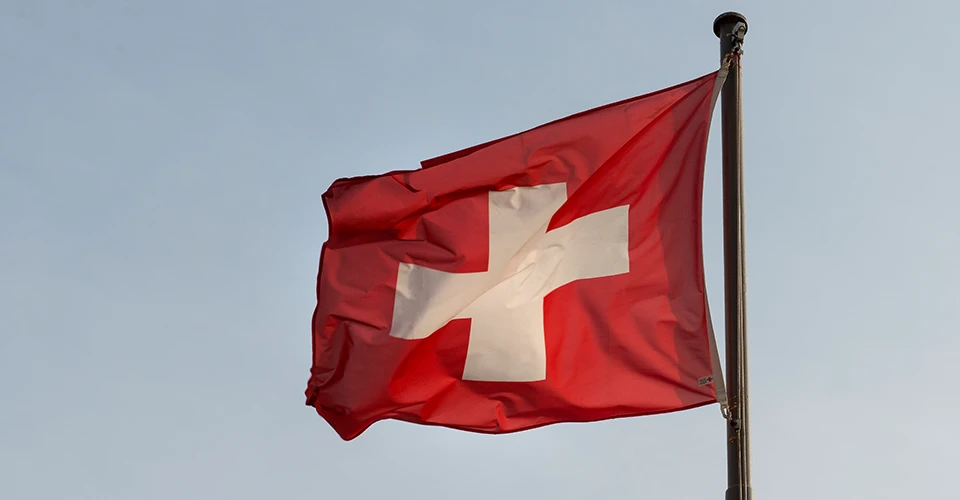
Can they?
They can not.
They can not. So, if you have some kind of weapon and, for example, people from Germany ask you, "Would you please sell us this kind of weapon because we want to give it to the Ukrainian Army?" you would say, "No, we will not be able to sell you this kind of ammunition or weapons because..."
This is our law, and it's the international law on neutral states. For me, as a private person, it hurts, of course. It makes it extremely difficult to explain. But we stick to the law because we expect all nations, our neighbors, and all of us to stick to the law too. We are small, we are weak, and we depend on others to play fairly. If we don't, how can we expect it from others?
Well, I really do understand you from one point, and I do not understand you from the other.
We are brothers.
Yes, General, what do you think about the prospects for the future? They say that negotiations may take place in a few weeks, between Trump and Putin, and maybe between Trump, Putin, and Zelenskyy.
I do not have the famous crystal ball. Yes, I do not have it. Nobody has it. We are talking about very strong people, with their interests and powers. And it is very difficult to make any prediction.
But now the question is, do you personally think that diplomacy can help persuade Putin to stop the war? Or will the end of the war be determined only on the battlefield?
We must find ways where Mr. Putin and the Ukrainian people do not lose face. This can only be done if it is approached in a Swiss way, with compromise. It is like having an argument at home between a husband and wife. If both stand firm on their maximum demands, you will not find a solution. And if you fight until you are both exhausted, isn't the price too high?
Yes.
It is more philosophical, but maybe there is a genius who will find a solution where nobody loses face, because that is a precondition for peace.
But don't you think that Mr. Putin has already lost face when he started this full-scale invasion on February 24th, 2022? And right now we are trying to save him?
If we measure the loss of his face according to his announcements, yes, he did not achieve his goals. And yeah, it is extremely difficult. The situation is so hard, military-wise, at the moment. Russia may sense some advantages, so why should they stop? We have a new president of the United States of America. Is he a hope for Putin or is it a danger for him? We don’t know. I’m not an expert in politics.
Yes, but you are an expert in military issues. So, the next question would be about the military. If you look at what the Russian army is doing right now and what it has been doing on the battlefields in Ukraine, what can you say about the Russian army in general?
Well, I think that at the very first moment, my thoughts were, "Oh, we did overestimate them."
That's what we also thought.
I thought I was right they are going to lose. But, astonishingly, they are quick learners. In a way, they learned from you, they adapt. And my fear is that, whatever the outcome of that war will be military wise, their military forces will be much stronger than before the war. They started to modernize their weapon systems, their tactics, and their operations. And they will be even more dangerous for democracy, for Western democracies. That's what I fear.
So we need to stop them.
We need to stop them.
But would a compromise be the means of stopping them?
That is a dilemma.
Okay. So thank you very much for coming today. Thank you very much for answering my questions. Thank you once again for all the help and support we are receiving from you, from Switzerland as a country, and from your company, IVF Hartmann. Thank you very much for these items because they are really very important and necessary for our brave soldiers on the front lines. And thank you very much even for showing how they work. I hope and wish that all the meetings you are going to have in Ukraine during these days will be very fruitful, and that you achieve everything you aimed for when planning your trip to Ukraine. Thank you very much, Mister General.
Thank you very much for having me here.
- News














